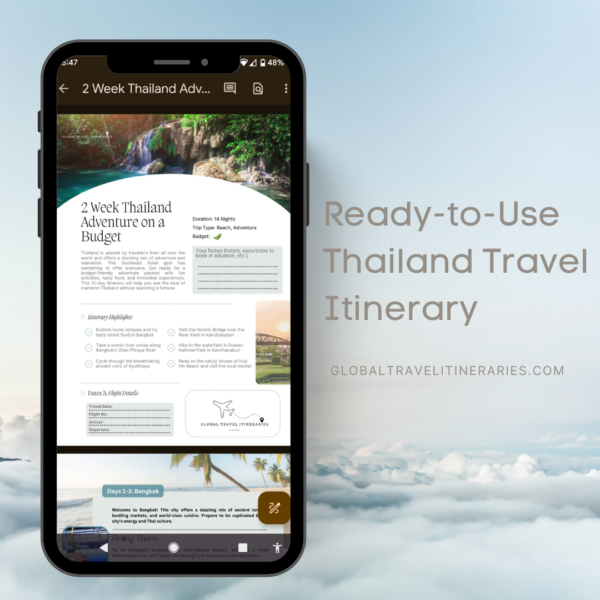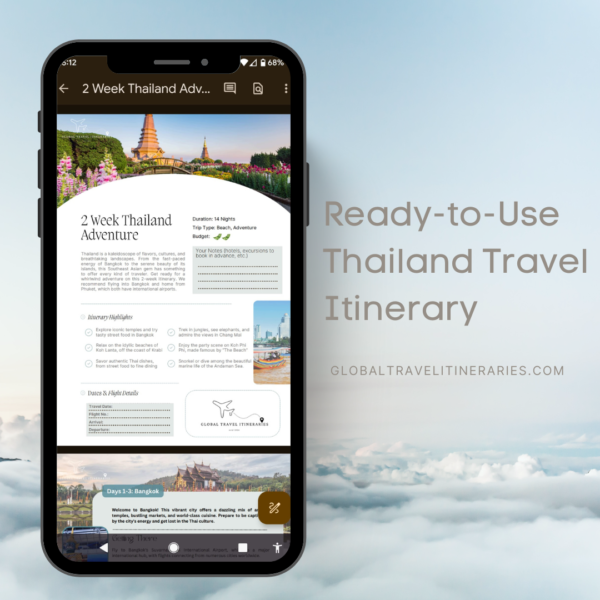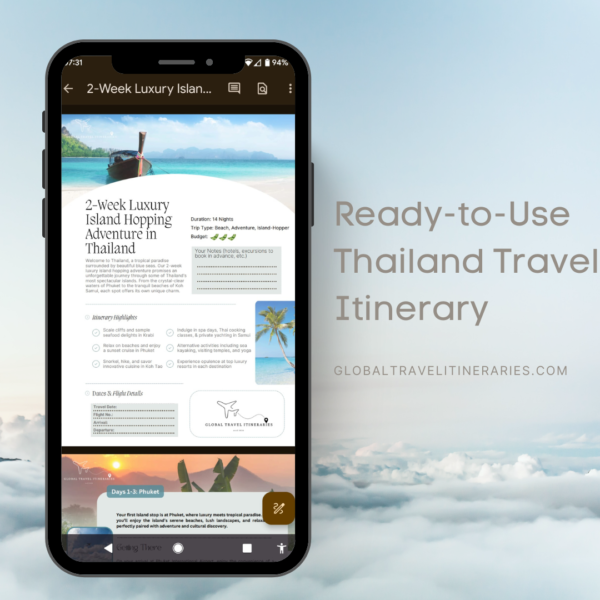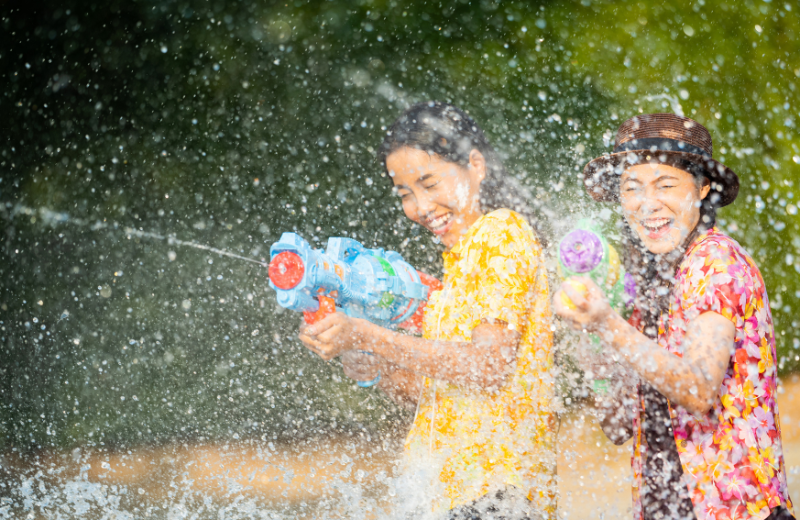
Known as Thailand’s New Year celebration, Songkran is a fun and refreshing way to welcome a new year. This guide covers everything you need to know about Songkran’s traditions, rules, duration, and the best places to experience this unique festival.
Table of Contents
What is Songkran? Thailand’s New Year Explained
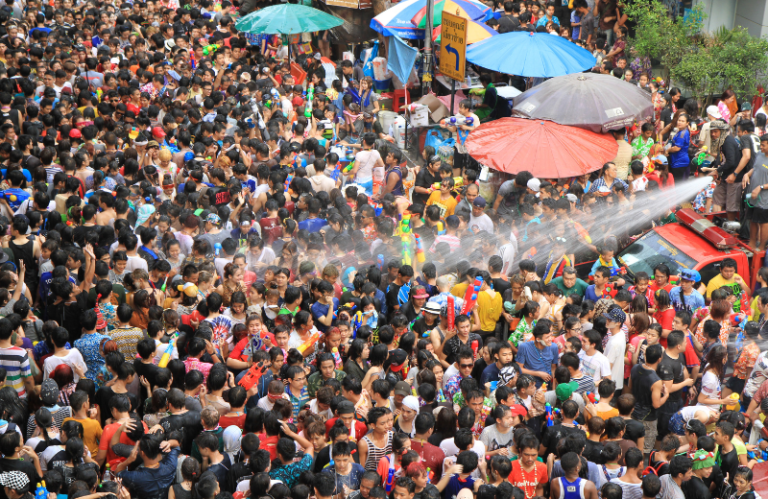
Songkran is Thailand’s most famous festival, held annually to mark the traditional Thai New Year. In Thai, the word “Songkran” means “to move” or “change,” representing the sun’s movement from one zodiac sign to another. Historically, this festival has religious roots, symbolising a fresh start and the washing away of past misfortunes.
During Songkran, Thai people come together to show respect to elders, clean temples, and perform water-pouring rituals. However, in recent years, it’s become globally recognised as the world’s largest water fight, and many venues around Thailand host foam parties and live music to accompany the revelries.
Thais throw water on Songkran because water symbolises the washing away of bad luck and welcoming a fresh start for the new year. So, if you’re planning to attend, be prepared to get soaked, as the Songkran water festival Thailand is truly a one-of-a-kind experience.
When is Songkran?
Songkran is held from the 13th to the 15th of April each year, though in some regions, celebrations last even longer. It marks the start of Thailand’s New Year according to the traditional lunar calendar. Over these three days, cities across Thailand host celebrations, making it a national holiday and a time when families reunite, and the streets turn into lively water-soaked battlefields.
How Long Does Songkran Last?
Officially, Songkran is a three-day festival, but some cities and regions extend it up to a week. Bangkok, for instance, celebrates for three days, but Chiang Mai often stretches festivities to five days. This means that no matter when you arrive, you’ll likely catch part of the celebration somewhere in Thailand. Just remember to pack clothes you don’t mind getting wet!
The Rules of Songkran
While Songkran is all about fun, there are some guidelines and etiquette you should keep in mind:
- Respect Boundaries: Not everyone on the street is there to join the water fight, so avoid splashing people in uniforms or those carrying important items, like phones or cameras.
- Wear Modest Clothing: Since it’s hot in April, it’s tempting to wear light clothing or swimwear, but it’s respectful to keep attire appropriate and modest. Most people wear colourful Hawaiian shirts or traditional Thai attire.
- Use Clean Water: Traditionally, only clean water should be used. You’ll see many locals using water scented with Thai herbs and flowers. Others fill buckets with hoses, or just use the hoses themselves.
- Don’t Throw Water at Drivers: Splashing people on motorbikes or cars is dangerous unless they’ve come to a standstill. Many accidents occur during Songkran, so exercise caution around vehicles.
- Respect Religious Sites: Songkran may be a water festival, but temples are still sacred spaces. Avoid water fights on temple grounds, and show respect when visiting.
- Avoid Alcohol in Public Areas: While Songkran celebrations involve plenty of partying, it’s generally discouraged to drink heavily in public spaces.
Where to Go for the Best Songkran Celebrations
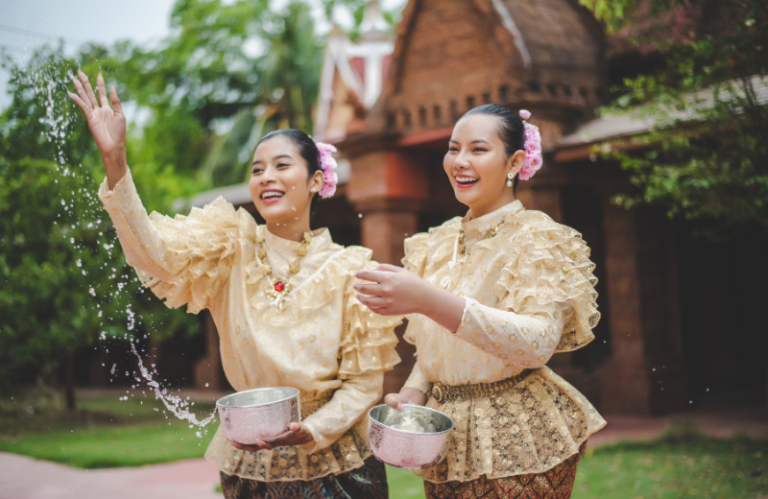
If you’re excited about the Songkran water fight, Thailand has several cities where you can join in on the action. Here are some top spots to consider:
1. Bangkok’s Water Festival – The City’s Most Epic Celebration
Bangkok’s Songkran is massive, with the main action happening in Khao San Road and Silom Road. Khao San is where you’ll find the liveliest crowd, with water guns, buckets, and music blaring from every corner. Silom Road, on the other hand, offers a more organised event, where families, tourists, and locals gather.
2. Chiang Mai – Traditional Meets Fun
Chiang Mai in Northern Thailand is famous for having one of the most traditional and extensive Songkran celebrations, lasting up to five days. The streets around the moat are popular for water fights, with many locals and tourists forming lines along the water to splash anyone who passes by. Here, you’ll also get a glimpse of more traditional ceremonies, like temple blessings and parades.
3. Pattaya – Songkran with a Beach Vibe
In Pattaya, Songkran often continues until the 19th of April. This beachside city takes the festival seriously, with activities extending into the famous “Wan Lai” day, which means “flowing day” in Thai. Pattaya’s Songkran has a bit of a party vibe, with foam parties and fire shows lasting well into the night, especially as people flock to the beach to celebrate.
4. Thailand’s Islands – A Tropical Take on Songkran
Songkran celebrations on Thailand’s islands are a fun way to enjoy the festival with a tropical twist. Popular islands like Koh Samui, Koh Phangan, Phuket and Koh Phi Phi each have their own water fights, often with a more relaxed, beachy atmosphere. Patong Beach in Phuket, as well as areas around Chaweng Beach in Koh Samui, attract crowds of locals, expats, and visitors looking for a mix of water play and island vibes.
What to Wear for Songkran
During Songkran, it’s common to wear light, quick-drying clothes since you’ll be getting wet. Traditional floral or Hawaiian-style shirts are very popular, and many tourists and locals wear them as part of the fun. Remember to wear shoes or sandals with a good grip, as streets can become slippery. Avoid wearing white or see-through fabrics for modesty.
Food During Songkran
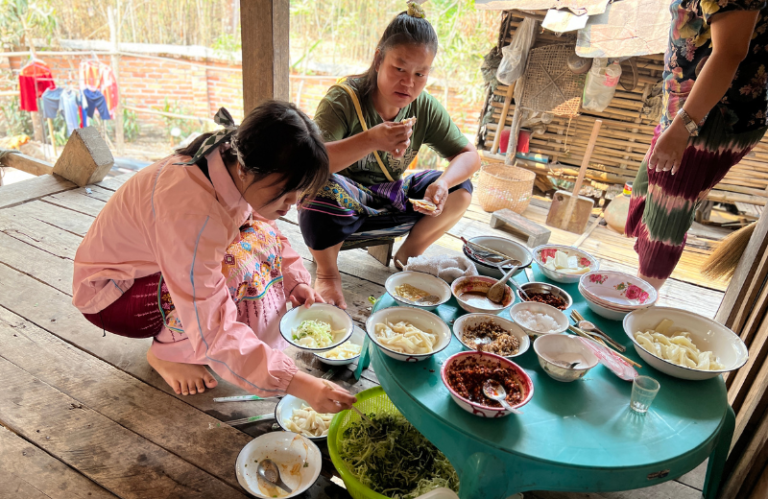
Songkran is also a time for enjoying delicious Thai street food. Street food vendors are everywhere, and some families also prepare special dishes, such as fish soups and herbal drinks, to welcome the new year.
Thai Street Food to Try During Songkran
- Mango Sticky Rice (Khao Niew Mamuang): This classic dessert is a sweet combination of sticky rice, juicy mango slices, and coconut milk. Mango sticky rice is especially popular during Songkran, as April is peak mango season, making it the perfect time to indulge.
- Som Tam (Spicy Papaya Salad): A refreshing dish made with shredded green papaya, tomatoes, green beans, peanuts, and a spicy chilli-lime dressing. Som Tam perfectly balances sweet, sour, salty, and spicy flavours – a true Thai staple.
- Grilled Meats (Moo Ping or Gai Yang): Grilled pork skewers (moo ping) or grilled chicken (gai yang) are popular street foods during Songkran. These skewers are marinated in a savoury-sweet sauce and served with a side of sticky rice.
- Thai Sausages (Sai Krok Isan): These savoury sausages, originally from the Isan region, are made with fermented pork, rice, and garlic, giving them a tangy flavour. They’re grilled and often served with cabbage and fresh chillies for an added kick.
The White Paste Tradition: A Symbol of Blessing
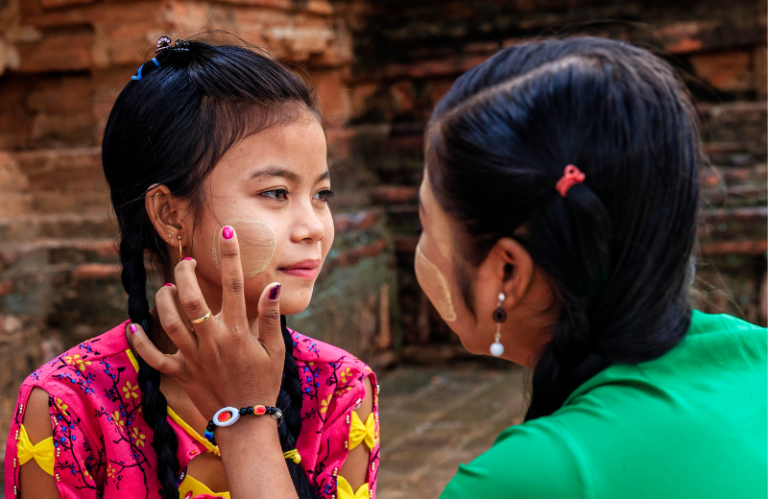
Another unique aspect of Songkran is the white paste you may see on people’s faces. This paste, known as din sor pong, is a chalk-like powder that’s often mixed with water to form a paste. It is applied to people’s cheeks, foreheads, or even their arms and legs during the festival. Here’s why this tradition is meaningful:
- Symbol of Protection and Blessing: The paste is a blessing meant to bring health and protection. Thais believe that applying it to one another brings good fortune, safety, and a fresh start for the new year.
- Sign of Respect: When applied by younger people to elders, it’s a gesture of respect, showing honour and wishing them well.
- Ritual Cleansing: Traditionally, the paste is used to “wash away” any lingering bad luck or negativity, symbolising a clean slate as people enter the new year.
You’ll likely notice that both locals and visitors take part in this tradition, as it has become a well-loved aspect of the Songkran experience.
Songkran’s Water-Pouring Ceremony
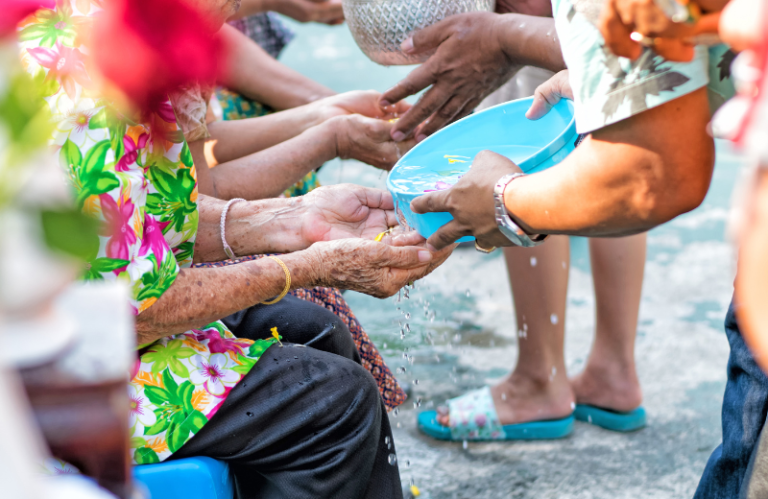
Beyond the fun and games of the water fights, Songkran includes a traditional water-pouring ceremony that has deep meaning in Thai culture. This is a quieter, more reflective part of the celebrations:
- Pouring Water on Buddha Statues: Thai people pour fragrant water over Buddha statues as a way of showing respect and asking for blessings. This ritual is often done at temples or in homes, where families set up small Buddha shrines.
- Honouring Elders: In a similar way, young people pour water over the hands of their elders, such as grandparents and parents, to ask for blessings and to express gratitude. This is called the “rod nam dum hua” ceremony, where water is mixed with flower petals to make it a respectful, symbolic gesture.
- Traditional Thai Dance and Music: In temples or community centres, you may find traditional Thai dances and musical performances. These performances are rooted in Thai culture and often depict scenes of nature, Thai legends, or the significance of Songkran.
Things to Avoid During Songkran
While Songkran is a fun festival, there are a few things you should avoid:
- Don’t Use Ice Water: It’s considered impolite to throw ice-cold water, as it can be shocking and uncomfortable.
- Avoid Wearing Expensive or Delicate Items: Jewellery and electronics can easily get damaged, so leave anything valuable at home.
- Respect Boundaries: Not everyone wants to join the water fight. Avoid splashing children, the elderly, monks, or those who seem uninterested.
Can You Avoid Getting Wet?
Wondering how to stay dry during Songkran? It’s a challenge, but here are a few tips:
- Avoid Main Water Fight Areas: If you stay away from popular places like Khao San Road in Bangkok or the moat area in Chiang Mai, you’ll have a better chance of staying dry.
- Stick to Indoor Activities: Many malls remain open during Songkran, so if you need a break from the water, pop into a shopping centre.
- Plan Temple Visits in the Early Morning: Visiting temples at dawn is a way to avoid the crowds and the water fights.
- Don’t travel during Songkran: Travelling increases your chance of getting wet, particularly on islands like Koh Phangan where Songthaew Taxis (open pickup trucks) are used.
Are there Songkran activities for those who prefer not to get wet?
There are quieter ways to enjoy Songkran without getting drenched. Many temples offer traditional celebrations, where you can observe the water-pouring ceremonies in a more subdued environment. Cultural centres and local festivals may also hold traditional performances and demonstrations where water play is less intense.
Frequently Asked Questions about Songkran Festival
Is Thailand more expensive during Songkran?
While prices can rise in some areas during Songkran, the impact may vary depending on the specific location, accommodation type, and how early bookings are made. Since accommodation is so cheap in Thailand, it’s unlikely that you’ll notice a difference.
Can children attend Songkran?
Songkran is generally suitable for families, and many areas offer a safe, enjoyable experience for young children. Cities like Chiang Mai, which has more traditional celebrations around the old city moat, often provide a family-friendly atmosphere, especially in the morning before the crowds get intense. Smaller towns or quieter neighbourhoods in larger cities are also great options for families, as they tend to have a more relaxed pace and gentler water play. Parents might prefer avoiding busier zones like Khao San Road in Bangkok or Patong Beach in Phuket, where the festivities can be a bit overwhelming for younger kids.
Is Songkran worth visiting?
If you’re looking to experience a unique cultural celebration, Songkran is absolutely worth visiting. It’s an incredible way to join in the Thai New Year celebration, see the unity of the Thai people, and, of course, have a great time.
What religion is Songkran associated with?
Songkran is associated with Buddhism, Thailand’s predominant religion. While it’s celebrated as a cultural festival, many of its traditions, such as the water-pouring ceremony on Buddha statues and honoring elders, have deep roots in Buddhist practices.
How does Songkran affect business hours?
During Songkran, many businesses close for the holiday, especially on the main days, April 13–15. However, shopping malls, larger supermarkets, and restaurants in tourist areas often remain open to cater to visitors. Smaller shops and local markets may operate on limited hours or close entirely.
Is it safe to bring a camera to Songkran?
It’s generally safe to bring a camera if it’s protected in a waterproof case. Many locals and tourists document the festival, but remember that water splashing is continuous, so a waterproof cover or a disposable waterproof camera is highly recommended.
What’s the best way to greet people during Songkran?
During Songkran, you can greet people with “Sawasdee Pee Mai,” which means “Happy New Year” in Thai. A warm smile and a respectful wai (the Thai gesture of pressing your palms together) is always appreciated, especially in more traditional settings.
Shop Our Thai Island Hopping Itinerary for £7.99
If Songkran sounds like a once-in-a-lifetime event, why not make it the highlight of your next adventure? shop our Thailand 2-Week Island Hopping Itinerary and let us take the planning out of your hands. For just £7.99, our itinerary shares local gems, seasonal highlights, and hidden experiences in each island destination.
Global Travel Itineraries provides detailed, personalised travel plans tailored to your interests and budget. We stock hundreds of itineraries for all around the world, starting from as little as £2.99. If you love to travel but hate to plan, Global Travel Itineraries is the perfect solution.

